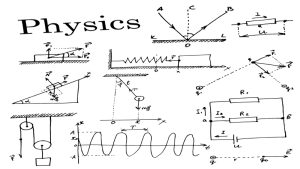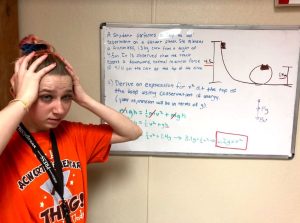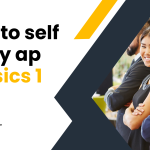Are you interested in conquering the challenges of AP Physics 1? Whether you’re a high school student aiming for a top score or a curious learner seeking a deeper understanding of the laws that govern our universe, this guide is for you. In this article, we will explore effective strategies and resources to help you successfully self-study AP Physics 1. So, buckle up, prepare your mind for an exhilarating journey, and let’s dive into the fascinating realm of physics!
Main Content
Section 1: The Foundation of Success
To begin your self-study adventure, it’s crucial to establish a solid foundation. Here are the key steps to get started:
Setting Goals for Success
- Define your goals: Determine what you want to achieve by self-studying AP Physics 1. Visualize your desired outcomes to stay motivated throughout the process.
- Create a study schedule: Devise a realistic study plan that accommodates your personal commitments. Break down the topics into manageable chunks and allocate dedicated time to each.
Building the Essential Knowledge Base
- Familiarize yourself with the AP Physics 1 framework: Understand the topics and concepts covered in the course. Access the College Board’s official curriculum guidelines to gain a clear understanding of what you need to learn.
- Strengthen your math skills: AP Physics 1 heavily relies on mathematical principles. Brush up on algebra, geometry, trigonometry, and basic calculus, as these tools will be instrumental in solving physics problems.
Selecting the Right Resources
- Textbooks and study guides: Choose reputable resources tailored to the AP Physics 1 curriculum, such as “Physics for Scientists and Engineers” by Randall Knight or “University Physics” by Hugh Young and Roger Freedman.
- Online platforms and video lectures: Supplement your learning with online platforms like Khan Academy, Flipping Physics, and Bozeman Science which offer comprehensive video tutorials and practice problems.
Engaging with Practice
- Solve past AP exam questions: Practice is key! Access previous exams and work through the multiple-choice and free-response questions to familiarize yourself with the exam’s format, content, and level of difficulty.
- Utilize online practice resources: Websites like Albert.io, AP Classroom, and Varsity Tutors provide a wide range of AP Physics 1 practice questions to enhance your skills and assess your understanding.
Section 2: Effective Study Techniques
Now that you have established a solid foundation, let’s explore some effective study techniques to optimize your learning:
What’s the difference between AP Physics 1,2 and C? Which should you take
Read Also 10 Secrets of Successful Learning
Actively Engage with the Content
- Take thorough notes: Summarize key concepts, equations, and problem-solving strategies as you read or watch lectures. Revise and consolidate these notes regularly to reinforce your understanding.
- Visualize concepts: Physics is a visual science, so leverage diagrams, graphs, and illustrations to aid your understanding of abstract theories.
- Form study groups or find a study buddy: Collaborating with peers allows for discussion, sharing insights, and cooperative problem-solving. Explaining concepts to others also reinforces your understanding.
Practice, Practice, Practice!
- Work on a variety of problems: Physics problems are diverse, and each requires a unique approach. Tackle problems from different sources, varying in complexity, to strengthen your problem-solving skills.
- Seek explanation for incorrect answers: When you encounter challenging problems, don’t settle for the correct answer alone. Understand why certain choices are wrong, as this enhances your conceptual knowledge.
Chunk and Review
- Chunk information: Divide complex topics into smaller, manageable sections. Understand one concept comprehensively before moving on to the next.
- Regularly review previously covered material: Physics is a cumulative subject, so periodic revision ensures that you retain and reinforce previously learned concepts.
Section 3: Additional Resources and Support
We understand that independent study can sometimes lead to questions and gaps in understanding. Here are some additional resources and support systems you can turn to:
Online Communities and Forums
- Physics Forums, Reddit’s r/AskPhysics, and AP Student Community: Engage with like-minded individuals and experienced physics enthusiasts who can provide guidance and clarification when needed.
Tutoring or Online Instruction
- Private tutors or online platforms: If you encounter persistent difficulties or prefer a personalized approach, seek the guidance of a physics tutor. Websites like Wyzant and Tutor.com can connect you with qualified tutors.
College Board Resources
- College Board’s AP Classroom: Access an array of resources, including progress checks, practice exams, and personalized feedback, on the College Board’s official AP Classroom platform.
Conclusion
Congratulations! You now have a roadmap to master AP Physics 1 through self-study. By setting clear goals, building a strong foundation, utilizing effective study techniques, and accessing additional resources, you will build a deep understanding of the subject and be well-prepared for the AP exam. Remember, the journey may be challenging, but the rewards are immeasurable. So, embrace the wonders of physics, keep your curiosity alive, and let your self-study adventure begin!











One thought on “How to self study ap physics 1”